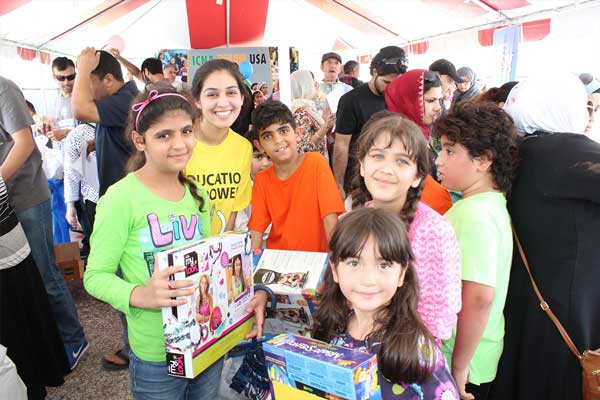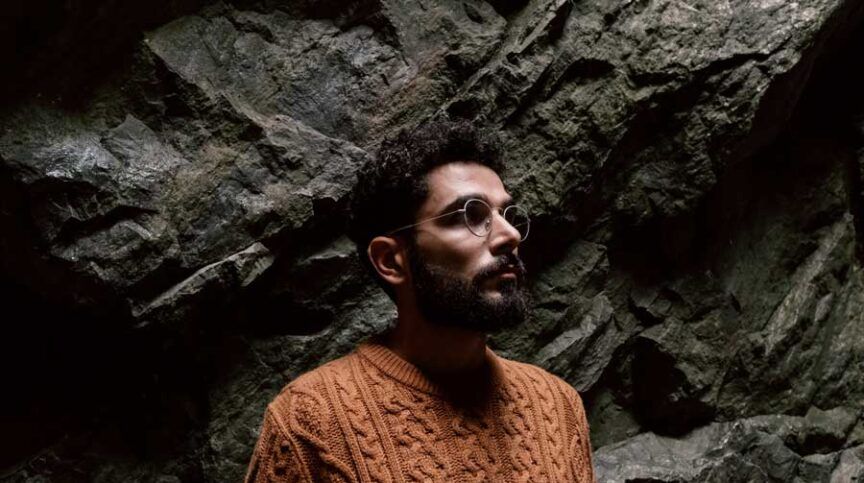Eid al-Fitr and Eid al-Adha are the most important Islamic holidays, but for Muslims in the United States, celebrating Islam’s holiest days can be a hurdle as well as a joy. Living in a society that hardly recognizes their religious traditions, they must forge their own celebrations, create their own sense of community, and advocate for their right to practice their religion. Various factors affect Muslims’ levels of Eid observance and enthusiasm. This article will delve into some of the challenges American Muslims face, as well as the creative solutions they have devised.
Challenge: Getting Time Off Work and School
Eid al-Fitr and Eid al-Adha are not recognized as federal public holidays in the United States. While some school districts do consider Eid a public holiday and give students and teachers the day off, most families must pull their children out of school to attend Eid prayers and celebrations. School absences can be detrimental when major exams or projects are scheduled on the same day.
Similarly, employees usually must negotiate to get days off work for the two Eids. Not all managers have the flexibility or the magnanimity to accommodate workers’ requests. Appeals for time off are complicated by the fact that many Muslims rely on moon sightings to confirm the day of Eid, so they often do not know in advance exactly which day their holiday will fall on. “I have only ever celebrated Eid in the U.S. my entire life,” says Aasma Maqbool of California, “and the most challenging aspect I have found is that Eid has to be celebrated around whatever else is happening in life, such as school and work, which is really difficult. There have been times when my husband or kids couldn’t properly celebrate because of exams or meetings.”
“The continuous challenge is that we still don’t have as much time off from work or school as there is for Christmas or Thanksgiving break,” adds Sakeena Rashid of Michigan. “We make do with paid time off and stretch the days as best we can to soak up all of the family time and Eid festivities.”
Solution: Know and Claim Religious Rights
There is no federal law that requires an employer to give employees days off for religious holidays. However, Muslims in the U.S. should be aware of their rights. Under Title VII of the Civil Rights Act, employers have an affirmative duty to provide “reasonable accommodation” to employees for religious observances, such as requesting a day off to observe a religious holiday, unless the employer can demonstrate that providing such a reasonable accommodation would result in an “undue hardship” on the employer.
As the Muslim population in the U.S. grows, it will likely become normalized for schools and workplaces to recognize the two Eids. According to a study by the Pew Research Center, “By 2040, Muslims will replace Jews as the nation’s second-largest religious group after Christians. And by 2050, the U.S. Muslim population is projected to reach 8.1 million, or 2.1% of the nation’s total population, nearly twice the share of today.” Changes are already afoot. In 2015, New York City public schools —the largest school system in the country — added the two Muslim holidays to their calendars for official days off.
Aasma Maqbool thinks increased awareness will help Muslim families celebrate their holidays more easily. She says, “I think if Eid could be recognized by our schools and workplaces to make it acceptable for Muslims to celebrate with their families that would be a step towards national recognition. I do think we have progressed, and it is more widely recognized today.”
Challenge: Competing with Christmas
Although there are many popular American holidays, Christmas is arguably the most festive. For at least a month before the actual holiday, stores, homes, and public spaces are adorned with Christmas trees, lights, wreaths, and decorations. Young Muslims growing up in this country often feel envious of friends whose main religious holiday is so universally, joyfully celebrated. Even at secular schools there are usually Christmas-themed projects, stories, singalongs, parties, and decorations. Most popular TV shows air special Christmas episodes, and many stores play Christmas music around the clock. With its appeal to all the senses, from delicious flavors to tantalizing fragrances, Christmas can seem dazzling and enviable. As a result, many American Muslims, either consciously or subconsciously, compare Eid to Christmas and try to make their own holidays just as extraordinary.
Susan Lynn, a convert from Missouri, says, “As a Muslim in America, my greatest challenge is trying not to compare Eid to Christmas and go overboard to make it feel just as special for my kids. There is no comparison. We can do lights and decorations, treats and presents, but it will never be quite the all- encompassing holiday season that Christmas is because there are so few of us celebrating it in my city.”
Solution: Making Our Own Eid Traditions
Muslim Americans’ desire to imitate Christmas, though perhaps understandable, can be harmful, primarily because we are not supposed to copy other religions. The Prophet (s) said, “The one who imitates those other than us [in faith and religious rituals] is not from among us. Do not imitate the Jews and Christians” (Tirmidhi).
Muslims must also acknowledge that in a country where Christmas traditions are so deeply rooted and intrinsically tied to commercialism and nostalgia, the two Eids are unlikely ever to compare. Therefore, we should not base our Eid satisfaction on whether non-Muslims recognize or appreciate our holidays, or whether or notthe two Eids seem as splendid as Christmas. Rather than copying Christian trends, Muslims need to embrace our own roots by honoring the traditions from 1,400 years ago. These include wearing special clothes on the day of Eid, exchanging gifts, attending prayer, giving charity, and sharing food with family, friends, and neighbors.
Sakeena Rashid says, “When we were growing up in the ‘80s Eid was always the happiest time for my siblings and me. My parents were both converts raising seven children as best they could with limited means, but an abundance of love. I remember one Eid my Ummie sewed all our dresses, and our Eid presents were wrapped in newspaper. Eid was simpler then. It wasn’t a recognized holiday, and we didn’t have the day off school.”
“Today,” she says, “My two favorite Eid traditions are getting together with my family to celebrate and participating in our secret gift exchange. Last year we rented a beautiful lake house and my parents, siblings and all our children came together for a week of fun that consisted of boat rides on the lake, matching family pajamas, and a plethora of delectable foods from spinach pies, grilled meats, and all the fattoush we could pile on our plates. Our Eid has come a long way from newspaper-wrapped gifts, but the focus on family, togetherness, and gratitude to Allah (SWT) remains our most cherished tradition.”
Challenge: Loneliness and Isolation
Many Muslims in the U.S. find themselves alone at Eid. Some left their families and friends behind in another country, and others are recent converts who have no Muslim family members to celebrate with. The holidays can be particularly desolate for those who are outside the bubble of family traditions and happy gatherings. While some Muslim families joyfully pile into their cars after Eid prayer to head to various friends’ and relatives’ homes, other Muslims have nowhere to go and no one to visit.
Christine Truelove Asaf is a convert who knows what isolation feels like. When she was a new Muslim, she says, “I felt unwelcome by the Arabs at the masjid and community gatherings. I felt so out of place. They weren’t welcoming or nice at all and they would speak only Arabic, which made me feel worse.”
Lail Hossain says, “I came to the USA as an international student. As a person who grew up in a Muslim-majority country (Bangladesh), I sorely missed the Eid traditions with family and friends that I grew up with. More than anything I missed the sense of community. I was utterly surprised at how ignorant and unaware people around me, including my classmates and professors, were about the major Muslim holidays.”
Solution: Muslims Must Support One Another

Muslims who are established in the U.S. with solid community and family ties can make a huge difference by welcoming left-alone Muslims into their gatherings with warmth and kindness. One convert explains how she, a new Muslim, and her husband, whose family was overseas, had no one to celebrate Eid with when they first got married. A generous Muslim family invited them to join their holiday celebrations. For several years, the family welcomed the couple as one of their own and thoughtfully shared gifts, food, and hospitality.
Lail Hossain describes how she took matters into her own hands after experiencing several lonely Eids as an immigrant. “When I became a mother, I took it as a mission that the next generation of Muslims wouldn’t feel the isolation I once did. I quit corporate America and founded a brand that helps families create a unique American Muslim holiday tradition.”
While the days of Eid in the U.S. might seem more limited and modest compared to the lavish festivity of holidays in Muslim-majority countries, they can still be deeply meaningful, joyous, and memorable. To make the most of Eid in America, Muslims must tap into all their ingenuity, creativity, rich traditions, and kindness.





